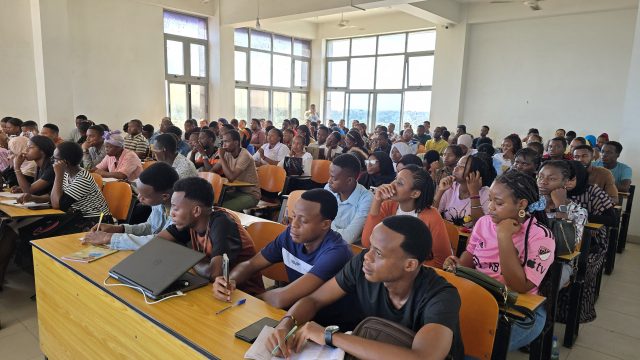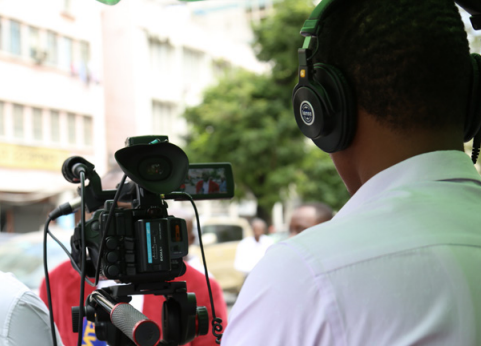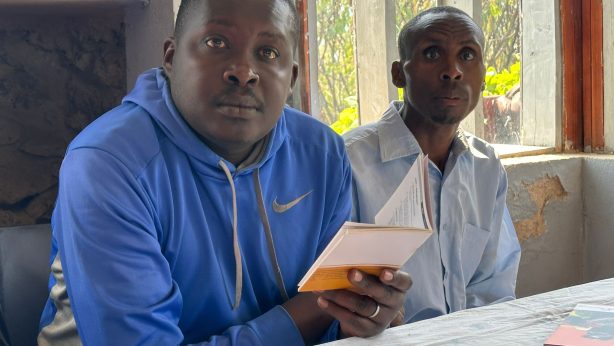Empowering Future Journalists: A dialogue on the media landscape
On November 28, 2024, under the umbrella of the Coalition on the Right to Information (CoRI), Twaweza, in collaboration with the Media Council of Tanzania (MCT), facilitated an impactful engagement with Journalism and Mass Communication students at Dar es Salaam Tumaini University.
The event centred around the current state of the media environment in Tanzania, delving into its challenges, opportunities, and the way forward for young journalists. These discussions were particularly significant, given that the future of journalism rests with these aspiring professionals.
Lively and thought-provoking discussions characterized the session. Twaweza seized the opportunity to present findings from its recently launched “Journalist Voices” report, highlighting pressing issues facing industry journalists. The presentation left many students visibly taken aback.
As the harsh realities of the profession unfolded, questions such as, “Am I in the right field?” and “What is my role in addressing these challenges?” visibly lingered in the audience’s minds.
Unveiling the Realities of Journalism
The report, presented by Annastazia Rugaba, Twaweza’s Director of Advocacy and Engagement, vividly portrayed journalists’ struggles, including inadequate compensation, lack of contracts, and gender disparities in newsrooms. Annastazia pointed out that while these challenges persist, journalists often shy away from reporting on them, raising an important question: “If journalists do not address these issues, who will?”
She highlighted real-life cases that resonated deeply with the students, emphasizing the need for journalists to use their platforms to advocate for their rights. She also addressed the gender imbalance in newsrooms, noting that female journalists frequently encounter biases. For instance, their stories are often relegated to less prominent sections of newspapers, rarely gracing the front pages.
Her presentation sparked a wave of curiosity among the students, many of whom expressed eagerness to learn more about the findings of the “Journalist Voices” report and how they could contribute to addressing these issues. 
Editorial Independence and Accountability
The session also featured an insightful presentation by MCT’s Program Officer, Tumbi Kiganja, on the Dar es Salaam Declaration on Editorial Freedom and Accountability (DEFIR). This declaration underscores the importance of safeguarding editorial independence and journalists’ freedoms, particularly in the face of external pressures such as financial and political influences.
Tumbi emphasized that journalism thrives on a commitment to serving the public interest. He remarked, “If you enter this field for the money, your journey will be short-lived. However, if you are here to serve the community, you are more likely to endure and make a lasting impact.”
His words served as both a caution and a call to action, urging aspiring journalists to prioritize the core values of their profession over personal gain.
Student Reflections: Balancing Optimism with Realism
The students responded with a mix of concern and optimism. They raised pertinent questions about issues such as the protection of freelance journalists, especially those undertaking investigative stories that could put them at risk. The fear of career instability after publishing sensitive stories emerged as a significant concern, underscoring the need for better support systems for journalists.
Despite these challenges, the students expressed a strong sense of hope and determination. The discussion also touched on the transformative power of journalism as the fourth pillar of the state, emphasizing its role in holding power to account and driving societal progress.
Moving Forward: Building a Resilient Media Landscape
The engagement at Dar es Salaam Tumaini University was more than just a presentation of facts; it was a call to action. By exposing students to the realities of the profession, Twaweza and MCT aimed to inspire a new generation of journalists who are aware of the challenges and prepared to tackle them head-on.
The session highlighted the need for collective efforts to improve the media environment in Tanzania. From advocating for better working conditions and gender equality in newsrooms to safeguarding editorial independence, the path forward requires the active participation of all stakeholders, including journalists, educators, policymakers, and civil society organizations.
For the students, the event was a pivotal moment of reflection and inspiration. As they step into the world of journalism, they do so with a clearer understanding of both the obstacles and the opportunities that lie ahead. The future of journalism indeed rests in their hands, and their resolve to make a difference will shape the media landscape for years to come.


